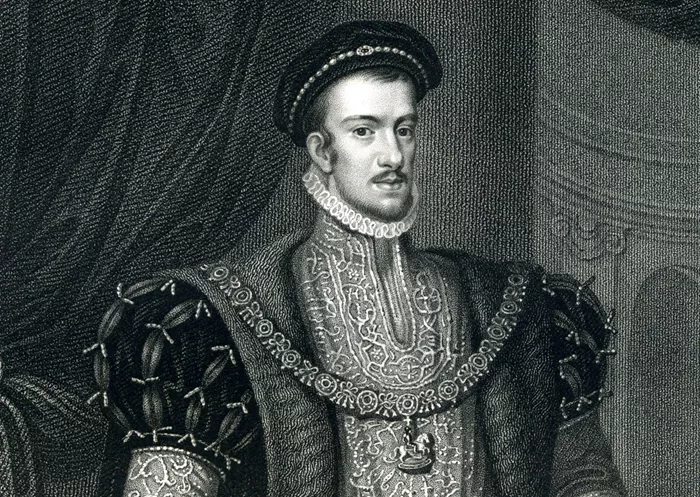January 16 has witnessed several notable events throughout British history. From political intrigues and military victories to pivotal legislative changes, this date has played a crucial role in shaping the course of British history. Below, we explore these events in detail.
What Happened on January 16 in British History?
The Trial of Thomas Howard (1572)
On January 16, 1572, Thomas Howard, the Fourth Duke of Norfolk, was tried for treason. His involvement in the Ridolfi plot aimed to assassinate Queen Elizabeth I and replace her with Mary, Queen of Scots. The plot was orchestrated by Roberto di Ridolfi, an Italian banker who sought to restore Catholicism in England. The conspiracy involved several prominent figures and was seen as a significant threat to Elizabeth’s reign.Howard’s trial revealed the intense political and religious tensions of the time. He was accused of conspiring with foreign powers and plotting against the Protestant establishment. Ultimately, he was found guilty and executed at the Tower of London. This event underscored the dangers faced by those who opposed the Protestant Reformation and highlighted the precarious position of Catholics in England during Elizabeth’s rule.
Outlawing of Roman Catholicism (1581)
Another critical event on January 16 occurred in 1581 when the English Parliament outlawed Roman Catholicism. This legislation was part of a broader effort to consolidate Protestant power and suppress Catholic influence within England. The Act made it illegal to practice Catholicism openly, leading to severe consequences for those who defied it.The outlawing of Catholicism reflected the deep-seated religious divisions in England during this period. It also contributed to a climate of fear and persecution, as many Catholics were forced to practice their faith in secret or face imprisonment and execution. This legislative move marked a significant step in the establishment of Protestantism as the dominant religion in England.
The Hampton Court Conference (1604)
On January 16, 1604, a pivotal moment in religious history occurred at the Hampton Court Conference. During this gathering, John Rainolds proposed that there should be a new translation of the Bible. This motion was approved by King James I the following day, leading to the commissioning of what would become known as the King James Bible, published in 1611.The King James Bible has had a profound impact on English literature and language, becoming one of the most widely read and quoted texts in history. The conference itself was significant as it represented an attempt to address religious disputes within England and promote unity among different factions within Christianity.
The Act of Union (1707)
January 16 is also notable for the passage of the Act of Union in 1707, which merged the English and Scottish parliaments. This legislation created a single Parliament for Great Britain and marked a significant step toward political unity between England and Scotland.The Act was driven by various factors, including economic considerations and security concerns following conflicts such as the Jacobite uprisings. It aimed to create a stronger political entity that could better defend against external threats and promote trade between England and Scotland.The unification had lasting implications for both nations, shaping their political landscape and identity. It laid the groundwork for modern British governance and is often viewed as a key moment in the development of the United Kingdom.
British Victory at Cape St. Vincent (1780)
On January 16, 1780, British naval forces under Admiral George Rodney achieved a significant victory against Spanish forces at Cape St. Vincent. This battle was part of the larger conflict known as the Anglo-Spanish War (1779–1783), which arose from tensions related to colonial expansion and trade.Rodney’s strategic brilliance during this engagement not only relieved British-held Gibraltar but also demonstrated Britain’s naval supremacy during this period. The victory bolstered British morale and contributed to their ongoing efforts to maintain control over critical maritime routes.This event is remembered as one of the key naval battles of its time, highlighting Britain’s dominance on the seas during the late 18th century.
Conclusion
January 16 has been marked by significant events that have shaped British history across various domains—political intrigue, religious conflict, legislative milestones, and military victories. Each event reflects broader themes within British society at their respective times: struggles for power, religious tensions, efforts toward unity, and military prowess.These historical moments serve as reminders of how past events continue to influence contemporary Britain, illustrating the complex tapestry that forms its national identity. As we reflect on January 16 throughout history, we gain insight into how these events have contributed to shaping modern Britain’s political landscape and cultural heritage.This exploration into January 16 reveals not just isolated incidents but interconnected narratives that define Britain’s historical journey. Each event carries lessons about governance, faith, conflict resolution, and national identity that remain relevant today.
Related Topics:

